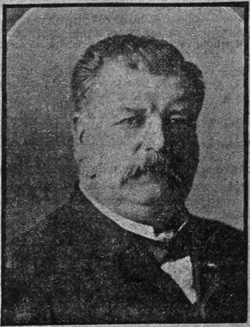The Sioux City Journal, September 19, 1901 (Photo of Civil War veteran)



The Sioux City Journal, September 19, 1901
THE BOYS IN BLUE OF ‘61
G. W. ARGO
“It was a few days before the battle of Perryville, Ky.,” said George W. Argo.
“The union army was only a few miles from the confederate army, and a battle was imminent. The commanders of the respective forces were maneuvering to secure the advantage of position. One night the commander of the union army ordered an extra strong picket to be stationed well out to the front, and a large number of officers and men were detailed as picket guards. I was one of them. We were placed under the command of lieutenant colonel of a Michigan regiment.
“Whether the officer in command of us was intoxicated or incompetent by reason of not being familiar with the roads and the geography of the country, I cannot say. However, we were marched out to the front and continued to march for three or more hours. The night was rainy and intensely dark. The roads were crooked and irregular, and the country was hilly.
“At last we were halted and a long picket line was established, with the extreme outer post supposed to be near the enemy. We were all ordered to hold our positions and be unusually vigilant. None of us were permitted to sleep, but it was promised that we would be released soon after daylight the following morning. That was a long, restless night for us, and we welcomed the first rays of light in the early dawn.
“But when the dawn came we made a most startling discovery. Our picket, instead of being stationed ahead of the command to warn our men of an approach of the enemy, found itself stationed squarely in the rear of the command and the head of our army had been exposed all night long to the enemy, which we knew was but a few miles away. Had the enemy known our army was so near and had not picket guard at the front they could have stolen in on us and captured the last man of us.
“It seems our strange mistake was due to the fact that leaders had become confused while marching in the darkness and rain, and had got the army turned around, and the pickets were consequently put out on the wrong end.”



